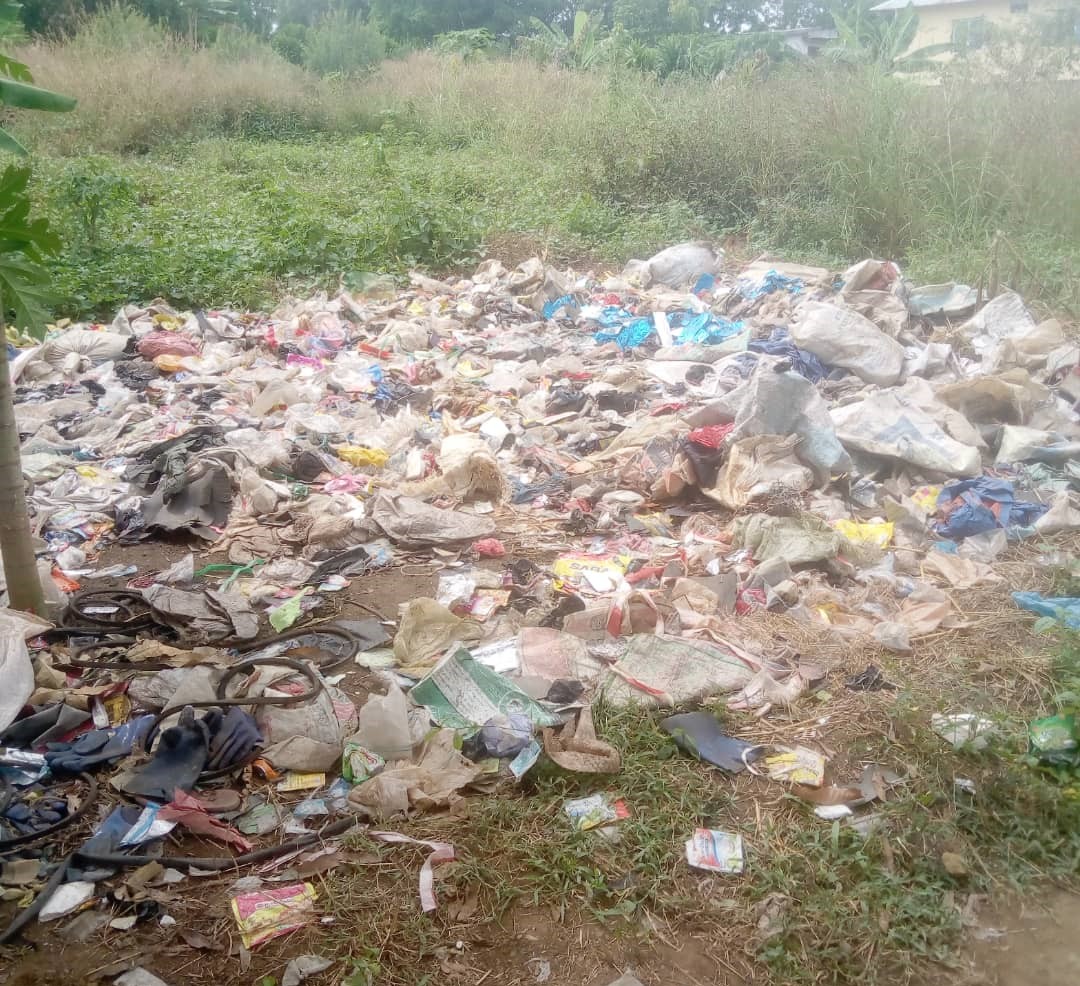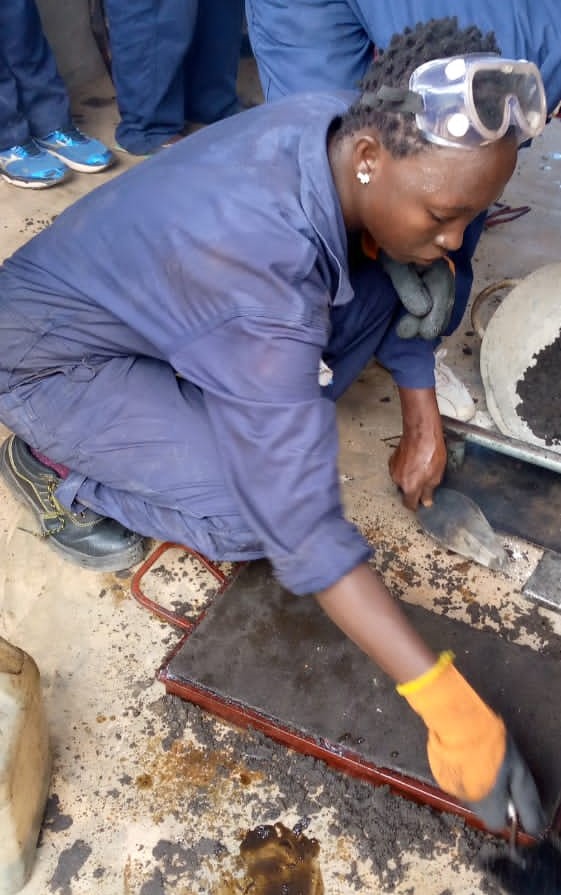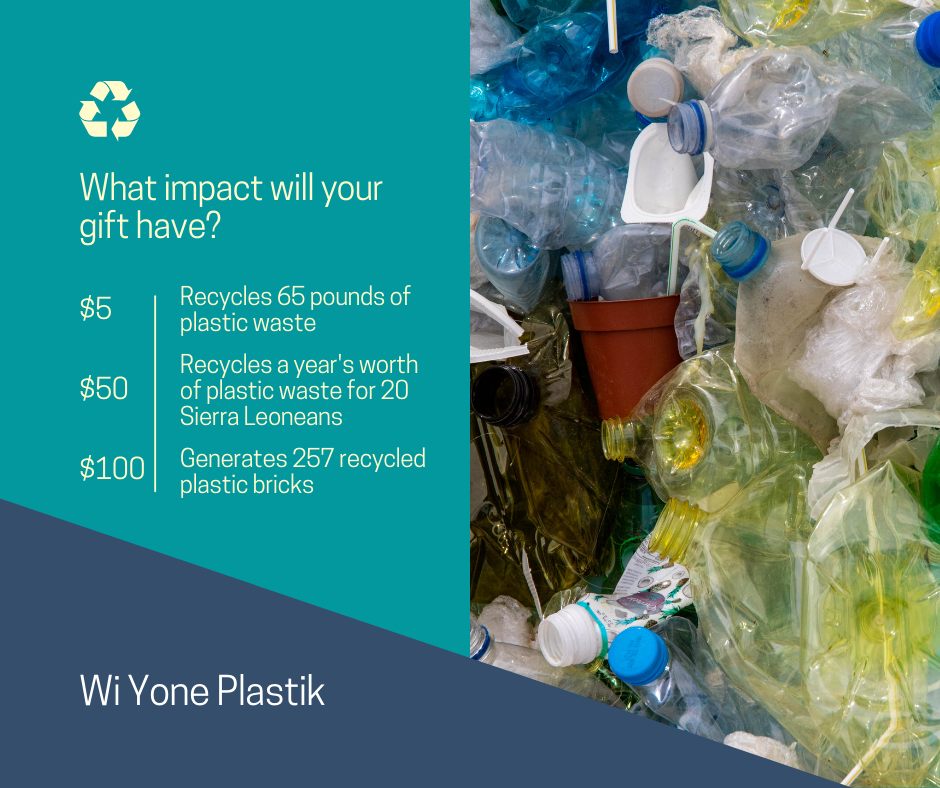Our mission is to catalyze gender equity and improved health outcomes in rural Sierra Leone by employing female makers to transform plastic waste into building materials.
Why plastic recycling?
Currently, there are no waste management services available to rural communities in Sierra Leone. As a result, the most widely adopted practice is to gather household waste, place it in a hole in the ground called a "dirty box," and burn the dirty box contents every few days. Dirty box waste includes food scraps, paper waste, and single use plastics. Burning plastic waste releases extremely toxic and carcinogenic chemicals into the air. Removing plastic from dirty boxes would eliminate the most significant source of toxicity from waste burning emissions.
The health risk posed by these emissions disproportionately affects women and girls, as they are typically tasked with collecting and disposing of household waste. It is also common for women to use plastic scraps to light their cooking fires, as they catch quickly and have a long burn time.
Wi Yone Plastik (meaning "our own plastic") proposes to implement community level, female-run plastic collection services that work in conjunction with local recycling centers to convert plastic waste into aggregate for concrete mix designs. This concrete can be made into bricks and sold for profit. We will also partner with existing community organizations to create culturally specific education programming to encourage plastic recycling and other behaviors linked to health and hygiene.
With the current Sierra Leonean government’s expressed concern for improved women’s health outcomes, as well as infrastructure development in rural areas, now is the opportune time to bring plastic waste solutions to Bonthe District.

What will the pilot look like?
After funding is secured, our team plans to initiate a 9-month pilot program where recycling collection services and corresponding educational programing will be established in three partner communities in Sogbini, Kpanda Kemo, and Jong Chiefdoms in mainland Bonthe District. Simultaneously, we will work to create a recycling facility central to these three communities.
On the community level, we will ask our partner communities to nominate a set number of plastic managers. All villages and towns in Sierra Leone have an existing network of health promoters called Community Health Workers, or CHWs. Communities are appointed a number of CHWs proportionate to their population, and they are geographically distributed so that each neighborhood has one CHW responsible for encouraging their neighbors to go to the local clinic when they are sick. Our network of plastic managers would operate similarly, with each partner community appointing the same number of plastic managers as they have CHWs. Plastic managers will be responsible for collecting plastic waste from their neighbors, ensuring it is properly cleaned for the recycling process, and arrange transport the the actual recycling facility. We will initially send the plastic waste to existing recycling facilities in larger cities until we have established our own facility central to the pilot communities.
Our team will also develop an adaptable curriculum and learning materials for existing community organizations to use in teaching best practices for plastic waste recycling and related health and hygiene issues. This curriculum and corresponding materials will all be written in the communities' native language, Mende. It is important to our team that our educational programing is accessible to non-English speakers and specifically tailored to the culture of our community.
For our district recycling facility, we will choose a location based on proximity to all three of our partner facilities and cost to rent space. We plan to purchase simple machinery in country that can be used to safely melt plastic waste before mixing it with sand and forming bricks from this material. Potential markets for these bricks include government infrastructure development contracts, NGO construction projects, and individual building projects. The facility will employ local residents, with a high priority on hiring women, to carry out the recycling process.
We aim to pilot our model in the capitals of our three selected chiefdoms: Tihun (Sogbini), Mattru (Kpanda Kemo), and Mattru Jong (Jong), beginning with Tihun as it is the current Sierra Leonean president's hometown. Our team has plans to conduct further community interviews and introduce the project to local authorities in these three communities in January, 2022.

Why isn't someone already doing this?
There are a handful of organizations in larger Sierra Leonean cities working to provide similar solutions to this exact same problem. This is great news because we know the solution model works! However, our approach is novel in that it brings the impact of these solutions to a considerably more rural and remote part of the country, and is designed to be scalable to other similarly remote districts. We also will be the first initiative to explicitly prioritize female employment, and are committed to employing 100% female plastic managers in partner communities, and at least 60% female makers in our recycling facility.
We are currently establishing partnerships with Wan Pot Coal Enterprise in Bo, Shae Recycling in Kenema, and Global Recycling Center in Freetown, all of whom produce brick pavers made from recycled plastic waste. Wan Pot has agreed to help us process plastic waste collected from partner communities while we are still establishing our own facility in Bonthe District.
How can my donation make a difference?
Donations, regardless of amount, are critical towards reaching our pilot goals! Here are a few measurable outputs associated with common donation levels:

Even a $5 donation makes a huge difference in amount of plastic being burned in our partner communities!



